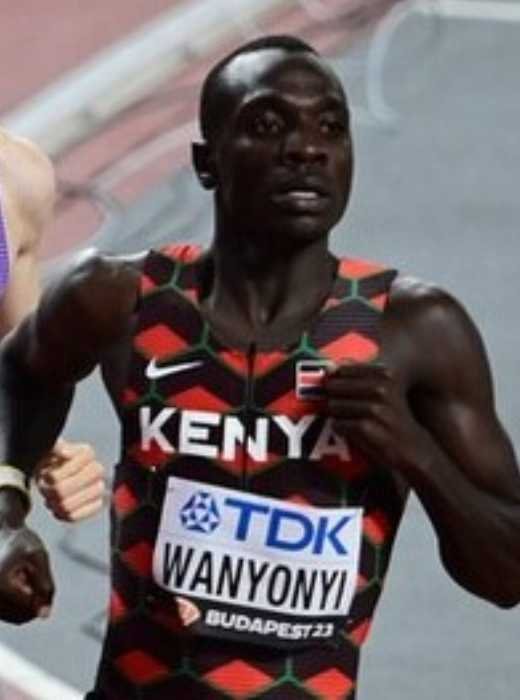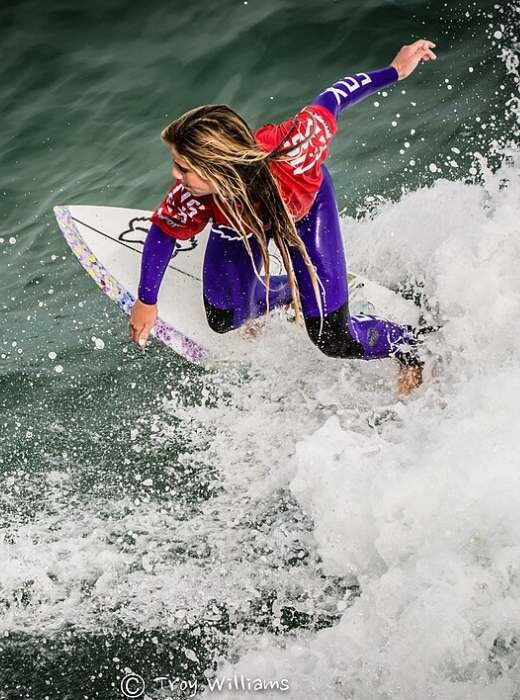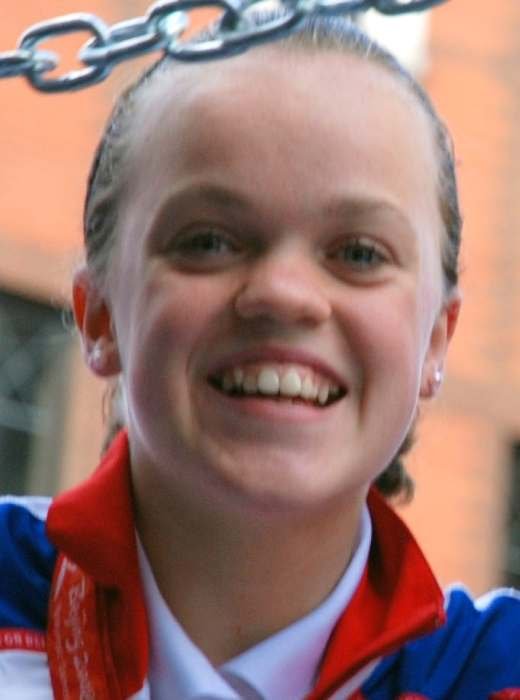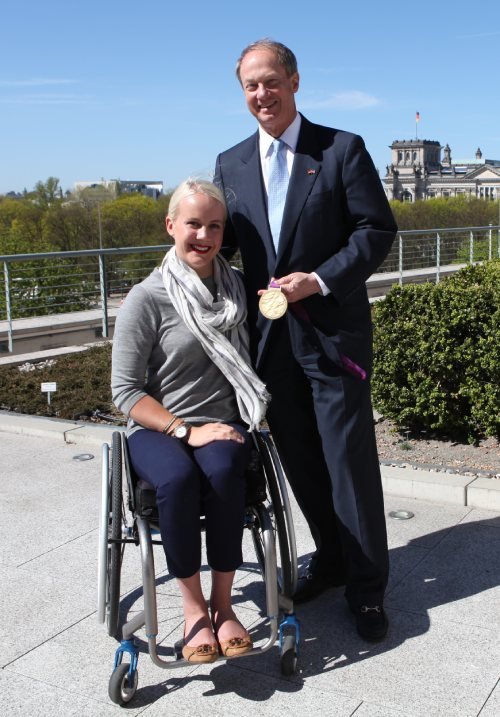In the rural expanse of Trans-Nzoia County, Kenya, where cattle graze across vast plains and children often choose between education and survival, a young boy once watched the horizon with weary eyes. For 10-year-old Emmanuel Wanyonyi, dreams were luxuries that cost more than his family could afford. Little did he know that his calloused feet, toughened by miles of herding cattle for pennies a day, would one day carry him to Olympic gold.
The Boy Behind the Cattle
Picture this: A skinny kid, barely ten years old, walking barefoot behind a herd of cattle under the scorching Kenyan sun. That was Emmanuel Wanyonyi in 2014 – the fifth of twelve children in a family engulfed by extreme poverty. When school fees became an impossible mountain to climb, young Emmanuel did what many children in rural Kenya must do – he dropped out and began working.
“I was earning about 350 shillings a month,” Wanyonyi recalls in reflection of his herdsboy days. That’s roughly $3 USD – less than what most of us spend on coffee in a single morning.
But this wasn’t just pocket money for candies or toys. This was survival money that he split with his mother to help feed his eleven siblings. While children his age elsewhere were learning multiplication tables, Wanyonyi was learning the brutal mathematics of poverty – how to divide almost nothing among many mouths.
By 2016, at just twelve years old, Emmanuel Wanyonyi had saved enough from his meager earnings to purchase five iron sheets. With these, he built a small, rudimentary shelter for his family – a twelve-year-old becoming the provider his circumstances demanded him to be.
“When you grow up in such conditions, you learn to be a man very quickly,” he says, a hint of that hardened childhood still evident in his eyes despite the Olympic gold that now accompanies his name.
A Father’s Final Gift and Tragic Goodbye
The year 2018 brought a pivotal moment in Emmanuel Wanyonyi’s life, marked by both promise and profound loss. His father, seeing something special in his son’s natural athleticism, gave him 300 shillings (about $2.50) to buy running shoes.
“It was the first time I felt someone believed in me as something other than a herdsboy,” Wanyonyi remembers.
But fate had written a tragic twist into that day’s story. The very same day his father invested in his future, his father was murdered. Emmanuel would never see him again – would never get to show him what those simple shoes would eventually help accomplish.
The tragedy might have derailed many young lives, but for Emmanuel Wanyonyi, his father’s final gesture became a sacred contract. Those modest running shoes would become his vehicle away from poverty, propelled by the memory of his father’s belief in him.
Emmanuel Wanyonyi: Spotted by a Teacher, Shaped by Champions
Fortune, they say, favors the brave – but sometimes it also requires someone else to recognize your bravery. For Wanyonyi, that someone was a local teacher who spotted the boy’s natural running gait as he chased after stray cattle.
“He runs like the wind,” the teacher reportedly told others in the village. “This boy should be in school, on a track.”
This chance observation led to an opportunity that changed everything: a return to education with a focus on athletics. Soon, Wanyonyi found himself training under the guidance of Kenyan royalty – Janeth Jepkosgei, the 2007 world 800m champion and 2008 Olympic silver medalist.
For a boy who once counted success in shillings earned per month, success was suddenly being measured in seconds shaved off race times. Under Jepkosgei’s guidance, Wanyonyi was introduced to coach Claudio Berardelli, who recognized in the teenager not just raw talent, but the kind of mental fortitude that only a childhood of hardship can forge.
“When I first met Emmanuel, I saw a quiet determination in his eyes that told me more than his words ever could,” Berardelli has said of their first meeting. “Some athletes have talent. Others have grit. Emmanuel had both in abundance.”
From School Races to the World Stage
The transition from herdsboy to athlete wasn’t just about physical training – it was a complete paradigm shift. Wanyonyi had to learn new disciplines, new routines, and perhaps most challengingly, he had to learn to dream bigger than survival.
Initially drawn to the 1500m event, Emmanuel Wanyonyi showed promise in regional school competitions. But it was in the 800m where he would eventually find his perfect expression – a distance that demands both explosive power and tactical intelligence, qualities that seemed encoded in his DNA.
In 2021, the world got its first real glimpse of what was coming when Emmanuel Wanyonyi claimed gold at the World Under-20 Championships, clocking an impressive championship record of 1:43.76. For athletics insiders, this wasn’t just a good performance – it was a declaration of intent from a teenager who had spent more time chasing cattle than chasing records.
“I remember watching that race and thinking, ‘This kid doesn’t run like he’s trying to win a race. He runs like he’s trying to outrun his past,'” one commentator noted after his victory.
The athletics world began buzzing with a new name. Emmanuel Wanyonyi. Remember it, they said. This boy is going places.
The Olympic Dream Comes True in Paris 2024
Fast forward to Paris 2024. The grandeur of the Olympic stadium could not have been further removed from the dusty paths of Trans-Nzoia where Wanyonyi once herded cattle. Yet, as he took his mark in the men’s 800m final, something in his demeanor suggested he belonged there – had always belonged there.
The race itself was a masterclass in tactical intelligence. Emmanuel Wanyonyi didn’t just run; he commanded the race with the authority of someone twice his age. When he crossed the finish line in a blistering 1:41.19, he had not only secured Olympic gold but had also registered the third-fastest time in history for the event, behind only the legendary David Rudisha and Wilson Kipketer.
Kenya’s dominance in the 800m continued – this was their fifth consecutive Olympic title in the event. But this wasn’t just another Kenyan victory. This was the coronation of a king who had once been considered less valuable than the cattle he tended.
“I wasn’t running against the other athletes,” Wanyonyi would later reflect. “I was running against every ‘no’ I’d ever heard, every hungry night, every moment I wanted to give up but couldn’t because my family was depending on me.”
.
Coming Home a Hero
After Paris, Wanyonyi didn’t rest on his laurels. Just weeks after his Olympic triumph, he sizzled on the track in Lausanne, proving his Olympic performance was no fluke but rather the emergence of a new era in middle-distance running.
But perhaps the most poignant moment came when he returned to Kenya, to the very village where he once herded cattle for pennies. The reception was nothing short of euphoric.
“They thought I was still herding cattle!” Wanyonyi laughed, recounting how some family members were shocked to see him on television. “My aunt called my mother saying, ‘Is that really Emmanuel running on TV? I thought he was still looking after cows somewhere!'”
The boy who had once built a small shelter with five iron sheets now returned as a national hero, capable of building much more than just a roof over his family’s head. He could now build futures – his own and those of his siblings who would never have to choose between education and survival as he once did.
Gold Medals, Grounded Values
What makes Wanyonyi’s story transcendent is not just the dramatic arc from poverty to podium but the character revealed along the way. Throughout his meteoric rise, those close to him speak not of an athlete transformed by success but one grounded by remembrance.
His aunt, Agnes Wepukhulu, and her husband, Pastor Andrew Mibei, who supported him during critical years, note that despite his now considerable wealth and fame, Wanyonyi remains the same thoughtful, determined young man they’ve always known.
Coach Berardelli, who has seen many talents come and go, maintains that Wanyonyi’s mental fortitude sets him apart. “Some athletes crumble under pressure because they’ve never faced real pressure in life,” Berardelli observes. “Emmanuel has been performing under life-or-death pressure since he was ten years old. An Olympic final? That’s just another day at the office for him.”
Perhaps the most revealing insight into Wanyonyi’s character comes from how he’s chosen to use his newfound wealth and influence. Rather than the flashy cars and extravagant lifestyle that often accompany sudden success, Wanyonyi’s first major investments were in education—not just for himself but for his siblings and other children from his village.
“I know what it means to be told you can’t go to school because there’s no money,” he explains. “I don’t want any child to hear those words if I can help it.”
Building Futures Beyond the Finish Line
At just 20 years old, Emmanuel Wanyonyi stands at the beginning of what could be a long and illustrious career. Athletics experts are already drawing comparisons to the great David Rudisha, wondering if Wanyonyi might one day break the world record that has stood since 2012.
But Wanyonyi seems to measure success differently than most. When asked about future goals, he doesn’t immediately jump to times or medals.
“I want to be remembered as someone who showed it’s possible to rewrite your story,” he says. “The beginning doesn’t determine the end unless you allow it to.”
For the millions of children around the world currently living in circumstances similar to those Wanyonyi escaped – herding cattle, missing school, wondering if dreams are only for the privileged – his journey offers something precious: tangible, visible proof that the impossible is sometimes just the improbable waiting for someone stubborn enough to attempt it.
As Kenya continues its remarkable dominance in middle-distance running, Emmanuel Wanyonyi represents not just the continuation of a proud tradition but its evolution – a new prototype of champion forged not in the relative comfort of training camps and sports schools but in the unforgiving crucible of necessity.
Emmanuel Wanyonyi didn’t just run his way to Olympic gold; he ran his way into a new life. And in doing so, he’s shown us that the distance that matters most isn’t the 800 meters of an Olympic final but the immeasurable expanse between where we start and where we dare to dream we might finish.
For a boy who once counted success in coins earned herding other people’s cattle, that’s a finish line more meaningful than any tape he’ll ever break with his chest.
If stories of resilience move you, Emmanuel Wanyonyi’s journey isn’t the only one worth knowing. Meet Sifan Hassan, the Ethiopian-born refugee who turned hardship into historic dominance on the track. From fleeing war to rewriting records across distances few dare to combine, her rise mirrors Wanyonyi’s — a testament to how far heart, hope, and hunger can carry a human soul.
Photo: Por Erik van Leeuwen, attribution: Erik van Leeuwen (bron: Wikipedia). – Zenfolio – Erki Pictures, GFDL, https://commons.wikimedia.org/w/index.php?curid=151485282




